Discover the captivating world of daffodil flowers and how to grow and care for these cheerful spring blooms. Explore their history, varieties, and ways to incorporate them into your garden or home decor.
Dazzling Daffodils are truly one of the most iconic and beloved spring flowers. With their bright, sunny blooms and cheerful appearance, these flowers have a way of lifting our spirits and signaling the arrival of warmer weather. Whether you’re an experienced gardener or just starting to explore the world of horticulture, daffodils are a wonderful choice to add color, fragrance, and joy to your outdoor spaces.
In this comprehensive guide, we’ll delve into the fascinating world of daffodil flowers, covering everything from their history and varieties to the best practices for growing and caring for these delightful blooms. By the end, you’ll be armed with the knowledge and confidence to incorporate daffodils into your garden or home decor.
The History and Origins of Daffodils

Daffodils, also known as Narcissus, are believed to have originated in the Mediterranean region and have been cultivated for centuries. These hardy, bulbous plants have been revered throughout history for their beauty and symbolism. In ancient Greek mythology, the daffodil was associated with the story of Narcissus, a young man who fell in love with his own reflection and was transformed into the flower that bears his name.
Over time, daffodils have become a beloved symbol of spring, hope, and new beginnings in many cultures. They are often used in religious ceremonies, folklore, and literature, and their cheerful appearance has made them a favorite among gardeners and flower lovers worldwide.
Daffodil Varieties and Characteristics

Daffodils come in a wide range of sizes, shapes, and colors, making them a versatile choice for any garden or landscape. Here are some of the most popular daffodil varieties and their key characteristics:
| Variety | Description |
|---|---|
| Classic Daffodil | The classic, trumpet-shaped daffodil is perhaps the most well-known and recognizable variety. These flowers feature a central cup-shaped corona surrounded by six petals, often in shades of yellow or white. |
| Jonquilla Daffodils | Jonquilla daffodils are known for their clusters of small, fragrant flowers and slender, rush-like foliage. They come in a variety of colors, including yellow, white, and even orange. |
| Tazetta Daffodils | Tazetta daffodils are characterized by their large, fragrant flower heads that can contain up to 20 individual blooms. These varieties are often used in cut flower arrangements and bouquets. |
| Miniature Daffodils | As the name suggests, miniature daffodils are smaller in stature compared to their full-sized counterparts. These compact plants are perfect for rock gardens, borders, or containers. |
| Doubles Daffodils | Double daffodils feature extra layers of petals, giving them a lush, ruffled appearance. These unique blooms come in a range of colors, including yellow, white, and orange. |
Regardless of the variety, all daffodils share a few common characteristics: they are perennial, meaning they come back year after year, and they thrive in well-drained, nutrient-rich soil and full sun exposure.
Growing and Caring for Daffodils
Daffodils are relatively easy to grow and can be a rewarding addition to any garden. Here are some tips to help you successfully cultivate these cheerful flowers:
Planting:
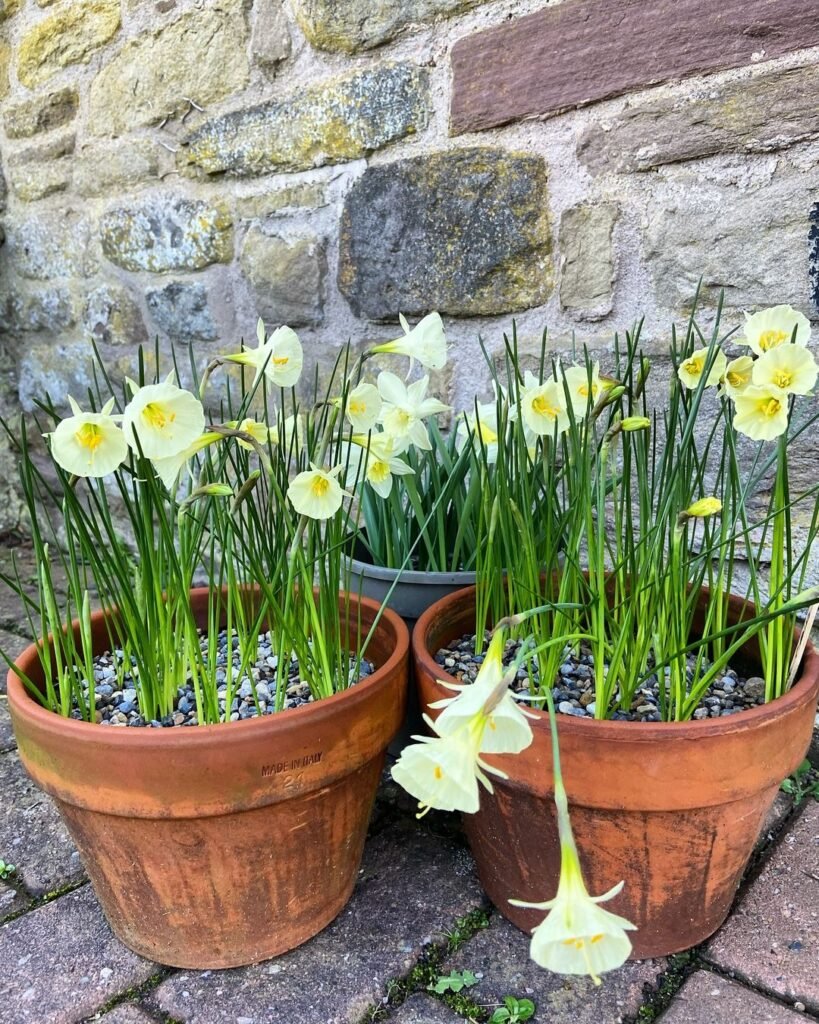
Daffodil bulbs should be planted in the fall, typically 6-8 weeks before the first expected frost. Choose a location that receives full sun and has well-draining soil. Plant the bulbs 6-8 inches deep and 8-12 inches apart, with the pointed end facing up.
Watering:
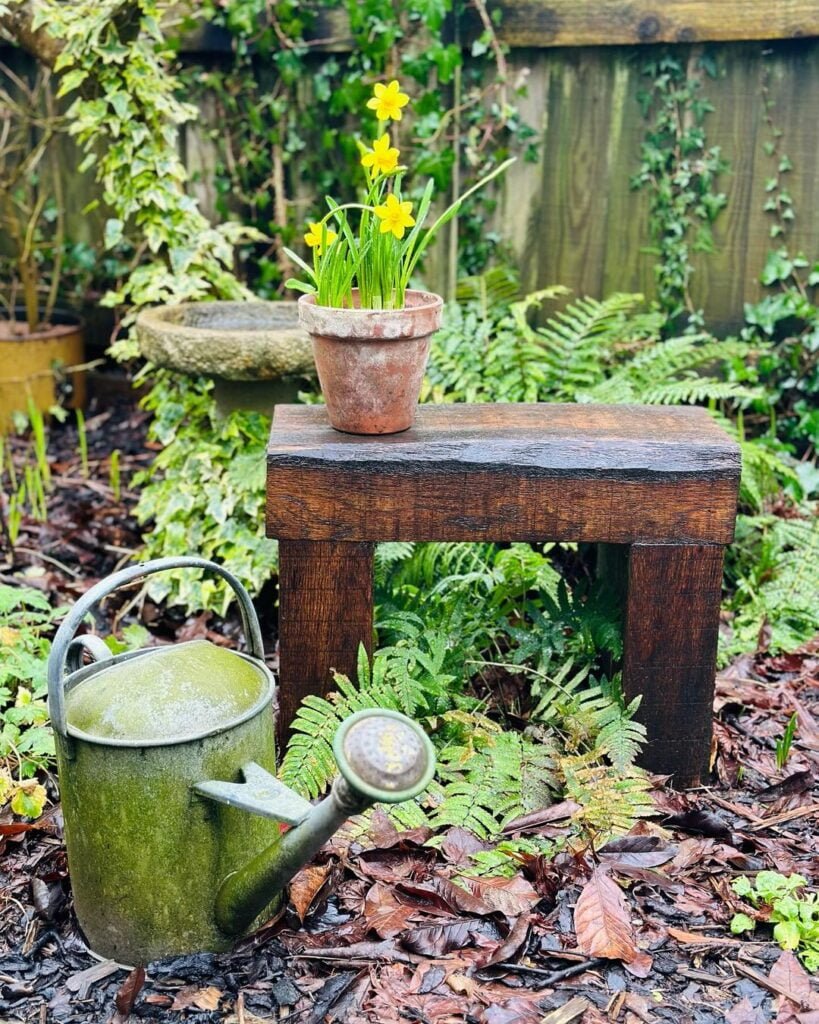
Daffodils prefer moist, but not waterlogged, soil. Water the bulbs after planting, and then maintain consistent moisture throughout the growing season. Avoid overwatering, as this can lead to rot or disease.
Fertilizing:
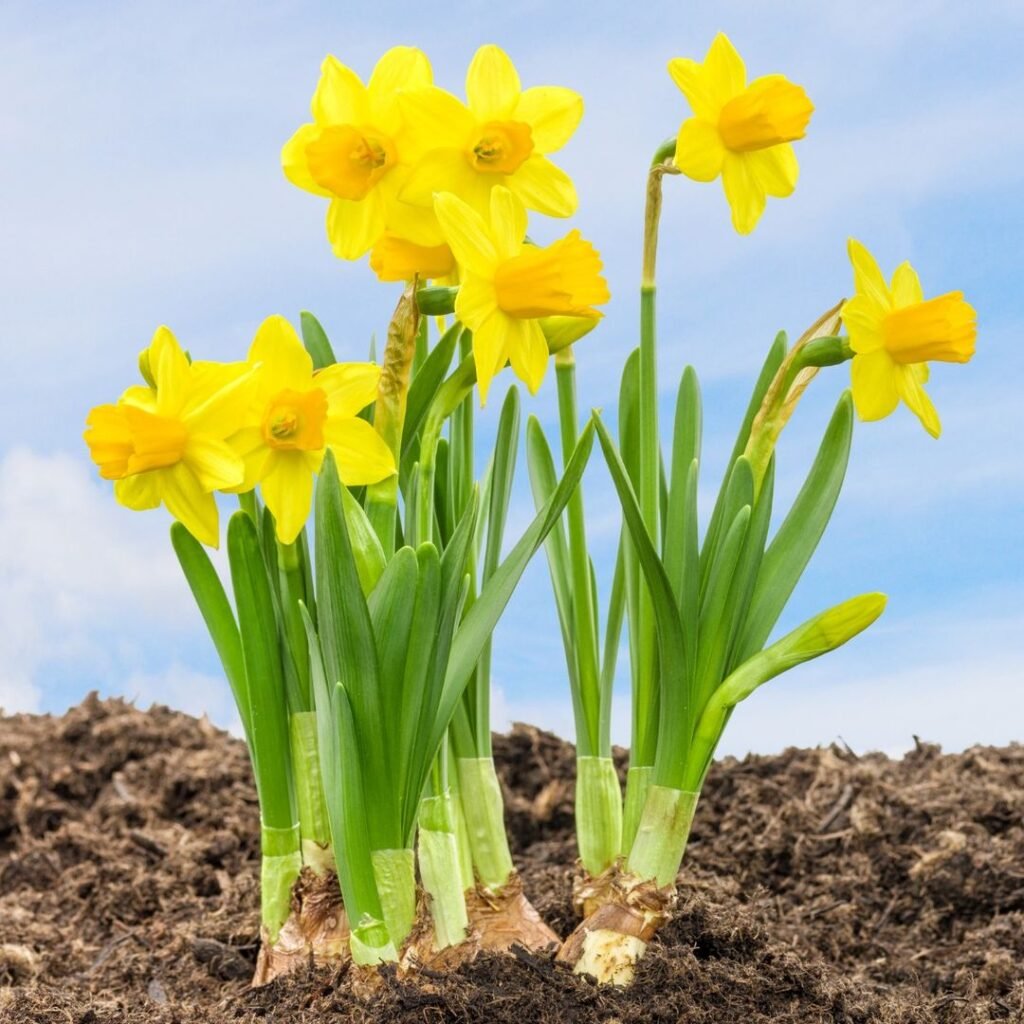
To encourage healthy growth and vibrant blooms, apply a balanced, slow-release fertilizer to your daffodil plants in the fall, just before new growth appears. Avoid using high-nitrogen fertilizers, as these can lead to lush foliage but fewer flowers.
Deadheading:
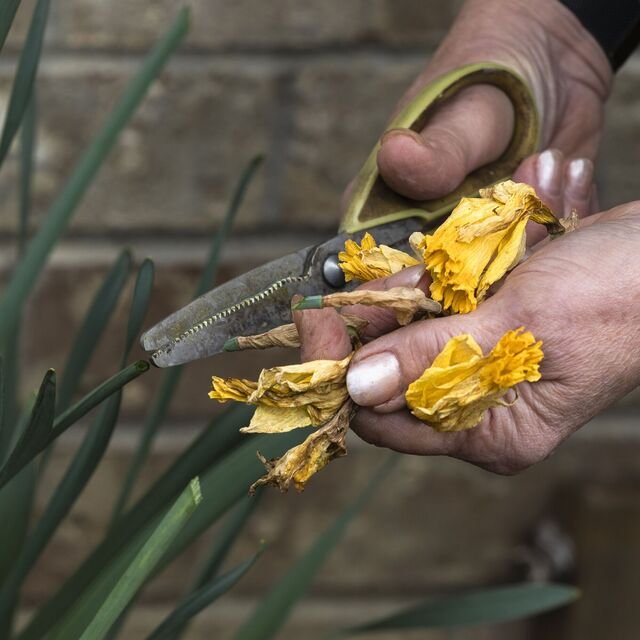
After the daffodils have finished flowering, be sure to deadhead the spent blooms. This will prevent the plant from putting energy into seed production and encourage the development of new flowers the following year.
Dividing:
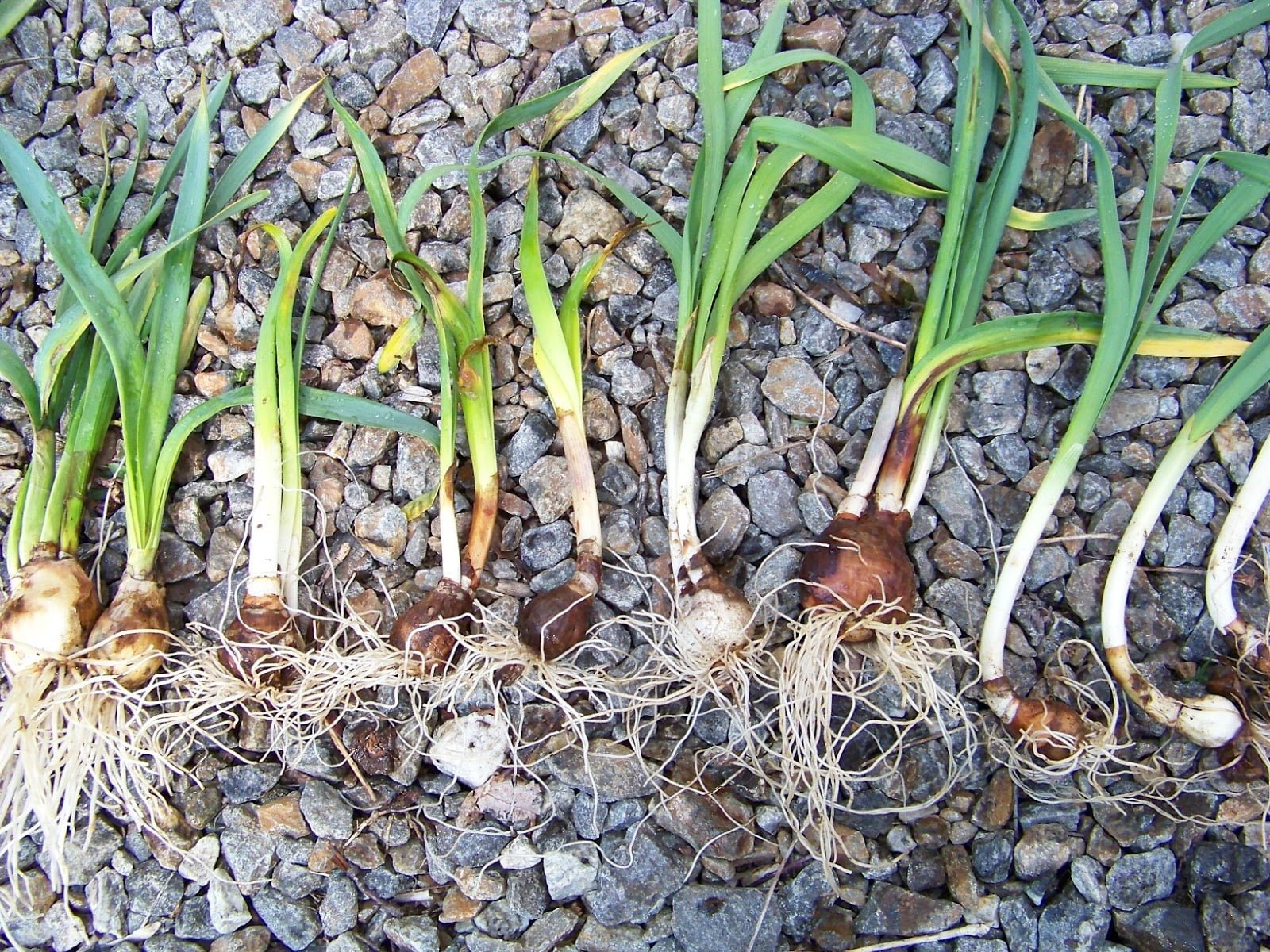
Over time, daffodil bulbs can become overcrowded, leading to smaller flowers and decreased bloom production. Every 3-5 years, it’s a good idea to dig up and divide the bulbs, replanting them in fresh, nutrient-rich soil.
By following these simple care guidelines, you can enjoy the beautiful and long-lasting display of daffodils in your garden year after year.
Incorporating Daffodils into Your Landscape
Daffodils are incredibly versatile flowers that can be used in a variety of ways to enhance your outdoor spaces. Here are some ideas for incorporating daffodils into your garden or home decor:
Borders and Beds:

Plant daffodils in clusters along the edges of your garden beds or borders to create a vibrant, cheerful display. Their tall, upright stems make them an excellent choice for adding height and visual interest to your landscape.
Naturalizing:
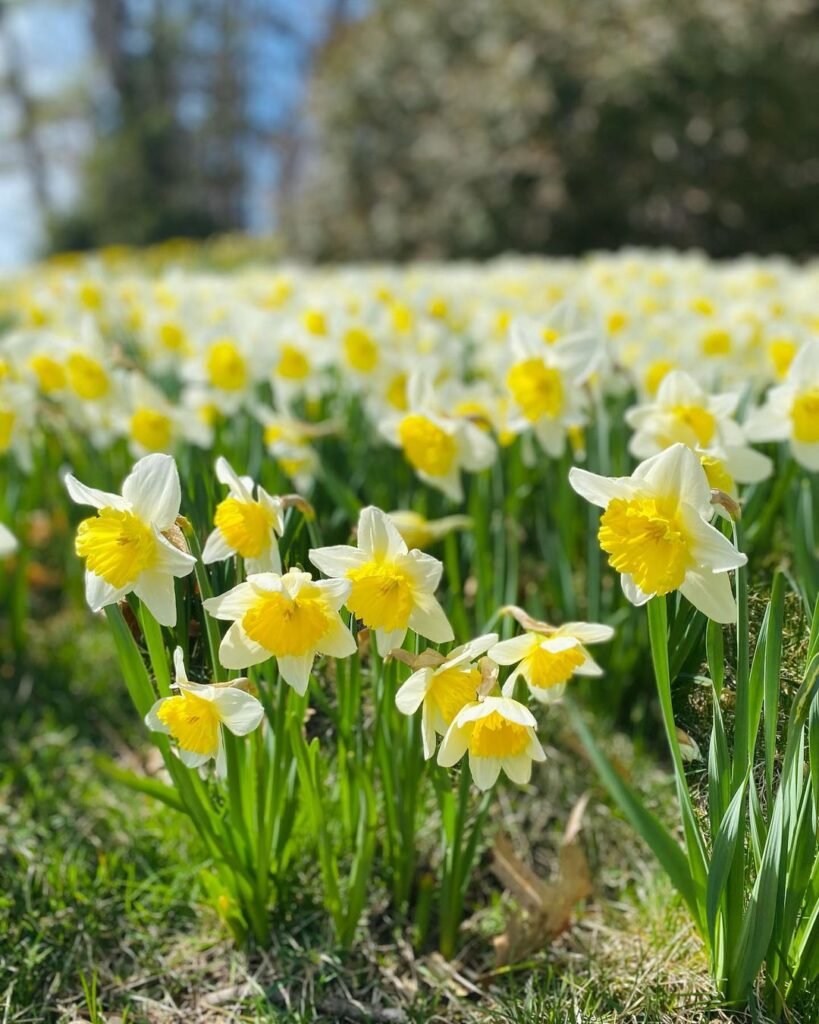
Daffodils are well-suited for naturalized plantings, where they can spread and multiply over time, creating a lush, meadow-like effect. This is a great option for areas with partial shade or under trees.
Containers and Pots:

Daffodils can also thrive in containers, making them a wonderful choice for patio gardens, balconies, or indoor spaces. Choose compact, miniature varieties for the best results in pots and planters.
Cut Flowers:
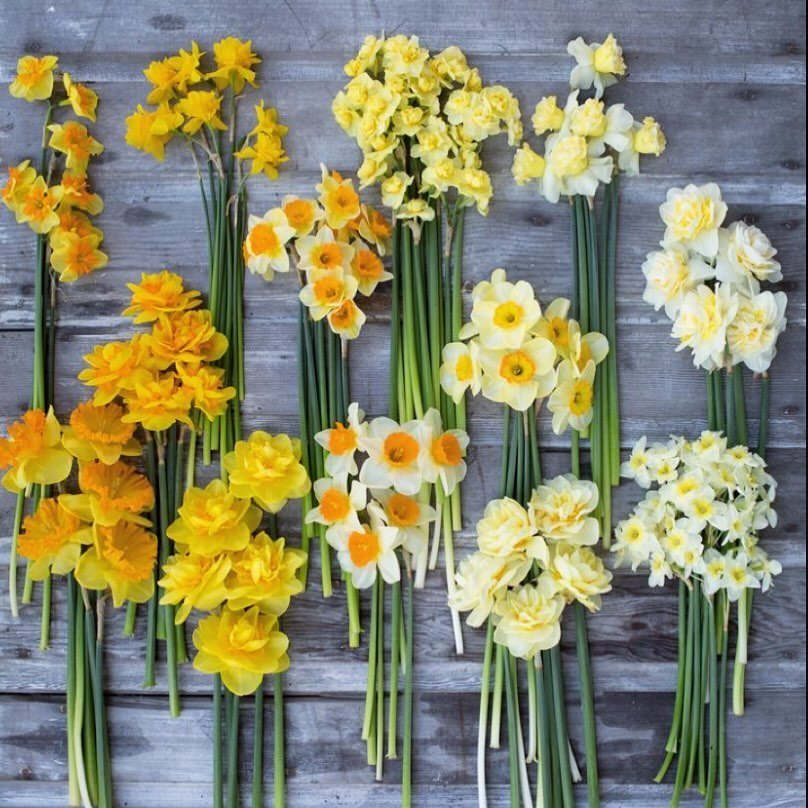
Daffodils make excellent cut flowers, with their long, sturdy stems and bright, cheerful blooms. Cut them just as the flowers are opening, and enjoy their beauty in vases and bouquets.
No matter how you choose to incorporate daffodils into your landscape, these delightful flowers are sure to bring a touch of springtime cheer and beauty to your outdoor spaces.
In Conclusion
Daffodils are a true harbinger of spring, with their vibrant, sunny blooms and uplifting presence. Whether you’re a seasoned gardener or a beginner, these flowers offer a simple yet rewarding way to add color, fragrance, and joy to your outdoor spaces. By understanding the history, varieties, and care requirements of daffodils, you can create a stunning display that will delight you and your visitors year after year.
So why not get out there and start planning your daffodil-filled garden today? With a little bit of effort and the right growing conditions, you’ll be well on your way to enjoying the enchanting, dazzling display of these beloved spring flowers.
Pingback: 12 White Flowers That Add Bold Beauty to Any Garden
Pingback: 30 Gorgeous Spring Flowers to Brighten Your Garden -
Pingback: Freesia Care Guide: From Planting to Blooming
Pingback: Hyacinth Flowers: Essential Planting and Growing Tips
Pingback: Fringe Flowers in Your Garden : Expert Planting and Care Advice
Pingback: 15 Plants with Purple and Green Leaves - Gardener's School
Pingback: 14 Bulbs To Plant This Fall For Beautiful Blooms Next Spring - Gardener's School
Pingback: Pink Daffodils : A Guide to Growing These Rare and Enchanting Blooms - Gardener's School